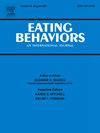不孕妇女暴食的相关心理因素
IF 2.4
3区 医学
Q2 PSYCHIATRY
引用次数: 0
摘要
饮食失调病理,包括暴饮暴食,在诊断为不孕症的女性中非常普遍。暴饮暴食有一系列可能破坏生育结果的后果,但特定人群的风险和保护因素尚不清楚。在这一独特人群中确定与暴饮暴食相关的因素可能会为更敏感和有效的预防和干预工作提供信息。在这项横断面观察性研究中,诊断为不孕症的妇女完成了精神症状、饮食失调病理、身材和体重高估(OSW)、不孕症困扰、不孕症接受和特质正念的有效自我报告测量。进行了Mann-Whitney U检验和两部分零膨胀泊松回归分析,以确定这些因素与暴饮暴食的存在和频率之间的关联。在我们的样本(N = 188)中,39.4%的人支持最近的暴食(N = 74)。这些参与者报告了更高的焦虑症状(p <;.001),抑郁(p <;.001), OSW (p <;.001),饮食限制(p <;.001),体重指数(<0.001),以及相对于否认暴食的人更低的正念(p = .003)。在不孕症的痛苦和接受程度上没有组间差异。在两部分零膨胀泊松回归模型中,较高的OSW是唯一与暴饮暴食几率显著独立相关的因素,而抑郁症严重程度的增加与暴饮暴食频率显著独立相关。最终,OSW和抑郁症可能是特别重要的治疗目标,对于不孕妇女参与暴食,超过相关的心理风险因素。讨论了对未来研究和临床实践的启示。本文章由计算机程序翻译,如有差异,请以英文原文为准。
Psychological factors associated with binge eating among women with infertility
Eating disorder pathology, including binge eating, is highly prevalent among women diagnosed with infertility. Binge eating has a range of consequences that may undermine fertility outcomes, yet population-specific risk and protective factors are unknown. Identifying factors associated with binge eating among this unique population may inform more sensitive and effective prevention and intervention efforts. In this cross-sectional observational study, women diagnosed with infertility completed validated self-report measures of psychiatric symptoms, eating disorder pathology, overvaluation of shape and weight (OSW), infertility distress, infertility acceptance, and trait mindfulness. Mann-Whitney U tests and two-part zero-inflated Poisson regression analyses were performed to identify associations between these factors and the presence and frequency of binge eating. In our sample (N = 188), 39.4 % endorsed recent binge eating (n = 74). These participants reported higher symptoms of anxiety (p < .001), depression (p < .001), OSW (p < .001), dietary restraint (p < .001), body mass index (<0.001), and lower mindfulness (p = .003) relative to those who denied binge eating. There were no group differences in infertility distress or acceptance. In a two-part zero-inflated Poisson regression model, higher OSW was the only factor significantly independently associated with higher odds of binge eating, whereas increased depression severity was significantly independently associated with greater binge eating frequency. Ultimately, OSW and depression may be particularly important treatment targets for women with infertility engaging in binge eating, above and beyond related psychological risk factors. Implications for future research and clinical practice are discussed.
求助全文
通过发布文献求助,成功后即可免费获取论文全文。
去求助
来源期刊

Eating behaviors
Multiple-
CiteScore
4.20
自引率
3.60%
发文量
65
审稿时长
60 days
期刊介绍:
Eating Behaviors is an international peer-reviewed scientific journal publishing human research on the etiology, prevention, and treatment of obesity, binge eating, and eating disorders in adults and children. Studies related to the promotion of healthy eating patterns to treat or prevent medical conditions (e.g., hypertension, diabetes mellitus, cancer) are also acceptable. Two types of manuscripts are encouraged: (1) Descriptive studies establishing functional relationships between eating behaviors and social, cognitive, environmental, attitudinal, emotional or biochemical factors; (2) Clinical outcome research evaluating the efficacy of prevention or treatment protocols.
 求助内容:
求助内容: 应助结果提醒方式:
应助结果提醒方式:


